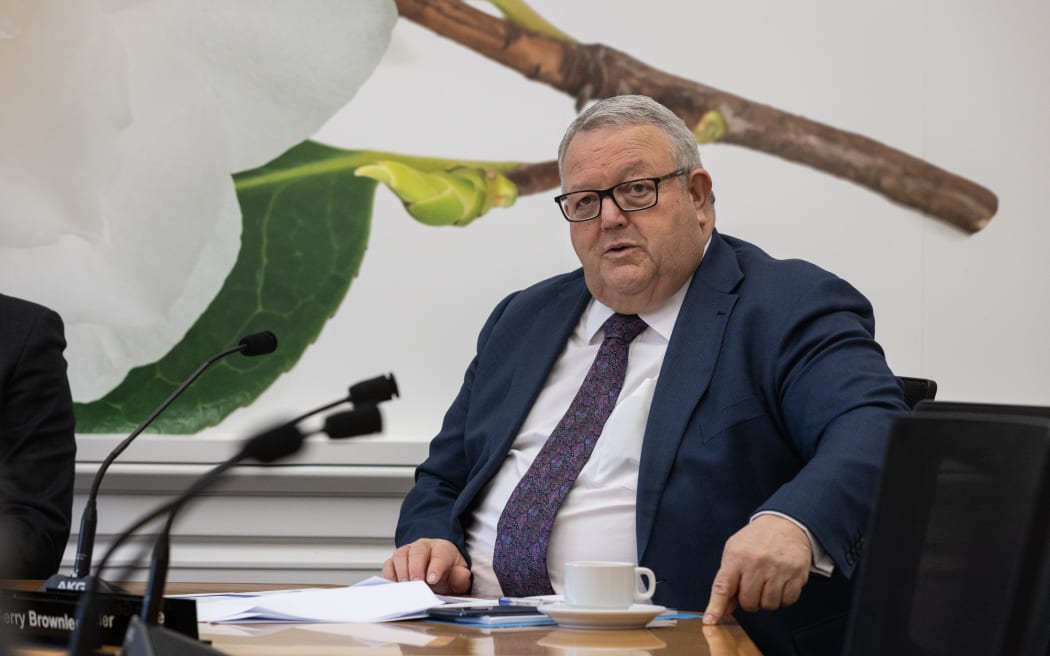A testy exchange in an otherwise cordial select committee discussion this week served as a good reminder that Parliament’s committees can initiate inquiries into any matter related to their subject area and call anyone in for a briefing.
The Foreign Affairs and Trade select committee this week received briefings from the Ministry of Foreign Affairs on the latest situation in some of the world’s conflict zones, particularly Myanmar and Afghanistan, for which the Ministry’s Chief Executive and Secretary of Foreign Affairs and Trade, Chris Seed, didn’t have a lot of good news for the MPs.

National Party MP Gerry Brownlee in Select Committee Photo: Phil Smith
When he began the update on Afghanistan, Seed told the MPs that he understood the committee had been dissatisfied with some of the material provided in recent times.
A little background here: in the past year or two the committee had received monthly briefings on the operation by which New Zealand assisted almost 2000 people to promptly leave Afghanistan and travel to Aotearoa following the Taliban takeover in the Central Asian country in August 2021. These people are Afghan nationals who helped the New Zealand Defence Force (NZDF) or other New Zealand Government agencies in Afghanistan, as well as their immediate family. Many of them have since been able to request resettlement in New Zealand.
Responding to Seed before he could proceed further, the National MP Gerry Brownlee offered to clarify.
“It was the repeated requests from your department to close off the briefing as an open briefing on our agenda. So we have an open agenda item which we can return to periodically - standing orders stuff - but MFAT had been requesting that we now remove the standard briefing that we were told was no longer necessary.
“Well, the point is that we decide what’s necessary and not the department,” Brownlee explained.
The MP was correct in that it’s up to Parliament who it should be briefed by and how often - after all, it’s Parliament’s role to hold government to account - that includes all government departments.
At this point, however, Seed offered his own clarification about the situation, drawing attention to workload factors faced by the department.
“After that operation was closed down, we looked to move and talk to the minister’s office about moving from doing those monthly meetings. As I understand it, what we were proposing was that we couldn’t continue to brief on an operation we were no longer involved with.
“In terms of providing the committee with updates about the situation in Afghanistan, of course we remain available to brief on that. But I’d also say that we did want to move away from doing it on an absolutely monthly basis, simply because I’ve got a division of ten (staff) running it with seven posts across 70 countries, and I’m running about three task forces. So it’s just a bit of a prioritisation of effort,” Seed said.

